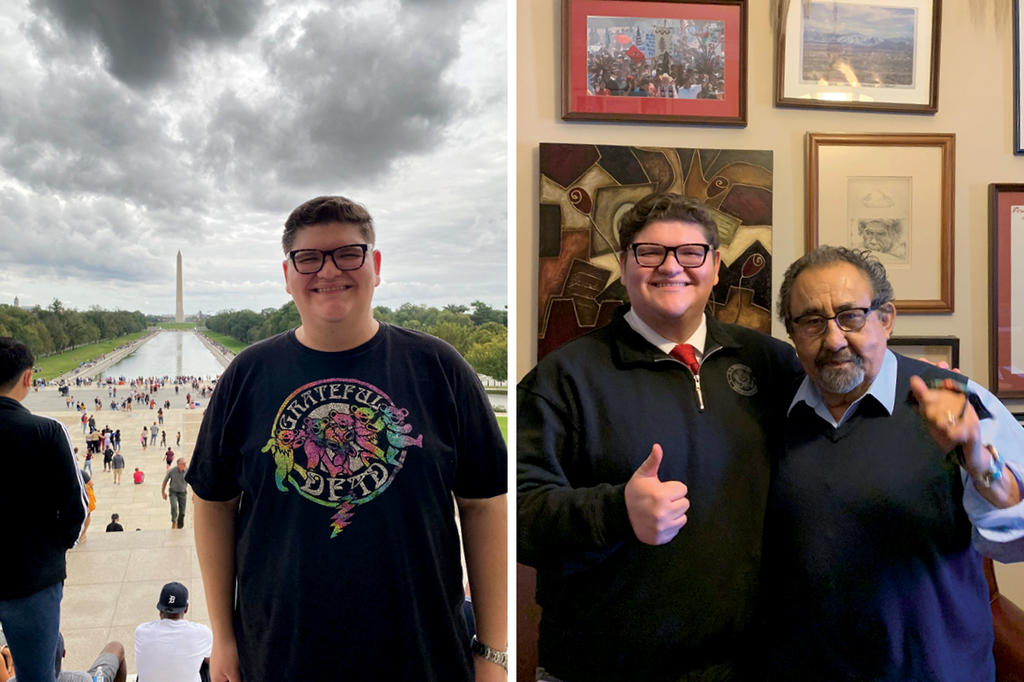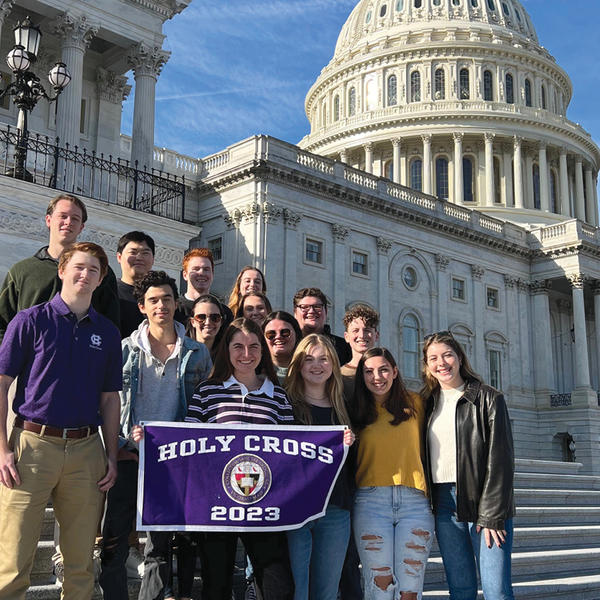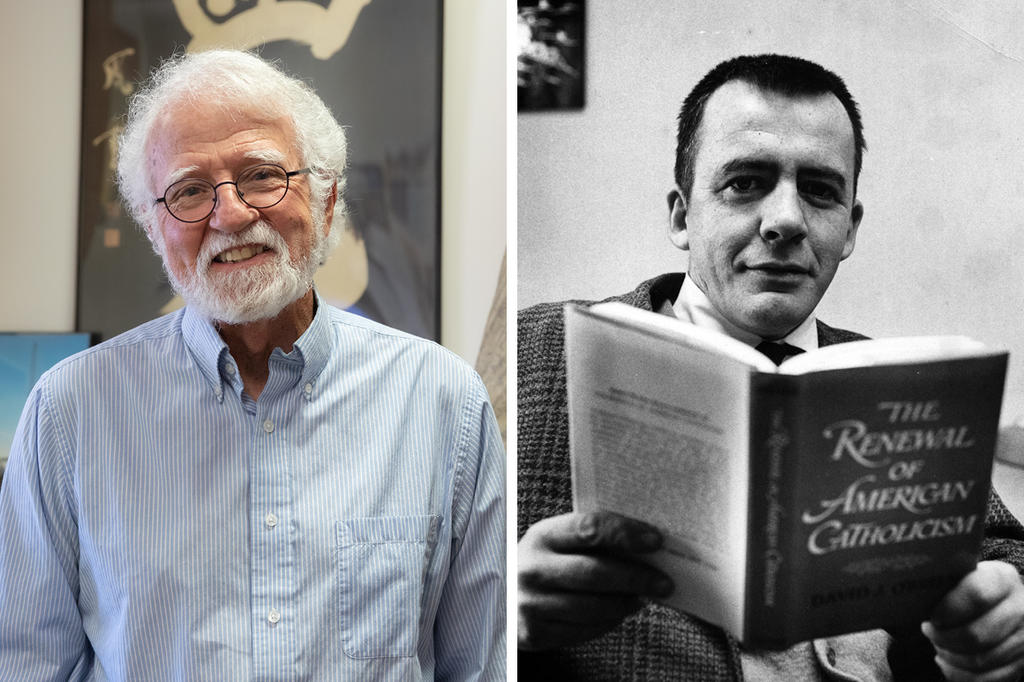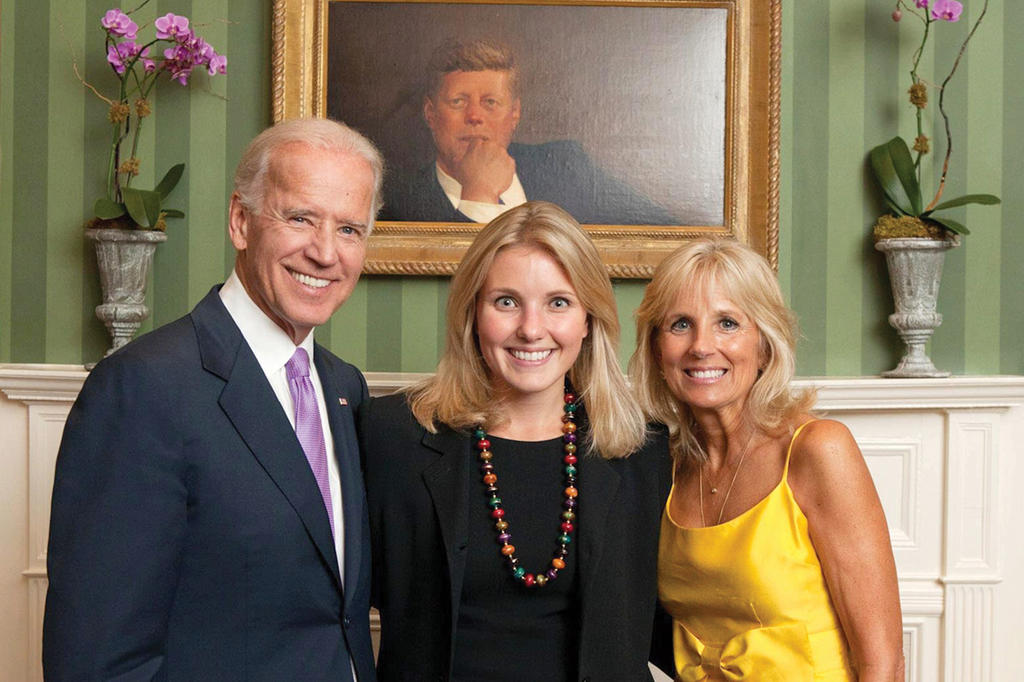"In Mexican culture, storytelling is a value we hold very dearly," explains Jaime Perez '23, an Arizona native and child of Mexican immigrants, who spent fall 2021 in the nation's capital as a member of the College's highly competitive Washington Semester Program, which celebrates its 50th anniversary this year.
Now back on Mount St. James, Perez is brimming with stories about the impact that experience had on him. Here are just a few:
After moving into his apartment in Arlington, Virginia, in August 2021, he took a break from unpacking to go to the Lincoln Memorial and take a photo, identical to one he took alongside his dad in 2015, on his first visit to the city. "I was baffled that I wasn't just there for a weekend trip anymore. I was there for a whole semester, to live there and make the most out of the experience and work in Congress, where I had dreamt of working my whole life," Perez says.
Then there were the many times his boss, U.S. Rep. Raúl Grijalva (D-AZ), came out of his office to shoot the breeze and share stories with the interns and legislative assistants. Grijalva represents Perez's hometown third district in the western part of Phoenix and, for Perez, is a sign of hope for inclusive immigration policies in Arizona: "Here's this guy I've been looking up to as my inspiration for being a public servant, and I was met with instant humility. Having the privilege of speaking with the congressman one-on-one, every single time it was a conversation that left me thinking."
And there was the day he answered the phone in Grijalva's office and heard the pleas of a migrant mother who was sick with COVID-19, unable to renew her worker's permit and fearing deportation. Perez immediately connected her with one of the district's case workers, who was able to help get her permit renewed before it expired.
"It reminded me that this government has a capacity to help people — my people, my community," says Perez, who notes he harbored a sense of mistrust and betrayal toward the government after experiencing a family member's deportation to Mexico. "For so long, I had this very twisted perception of what the government actually stood for, because I felt hurt from what it had done to me. But I realized at that moment, as an intern and in the future, I have the capacity to change that, and to build trust and be the resource that people can call on and provide them with the support they need. It was an eye-opening experience."

After he graduates from Holy Cross next year, Perez might go to law school or graduate school, but says wherever he ends up, he wants to pursue leadership, advocacy and politics. It's safe to say that in a matter of months, the Washington Semester Program has steered the trajectory of Perez's future, and for the past 50 years, the same has been true for generations of Holy Cross students. Gary DeAngelis, longtime program director, has had a front row seat to it all.
"The opportunities in Washington, they're extraordinary. I've been doing this for 35 years, for well over 1,000 students, and the biggest part, for me, is to see the impact that it's had on their lives," DeAngelis says. "And not so much the specific internship, or being at a presidential inauguration or things like that — all those are wonderful — but to see the development of these young people; the kind of intellectual and social maturing that takes place among these students has been incredibly impressive. The program has been transformative."




